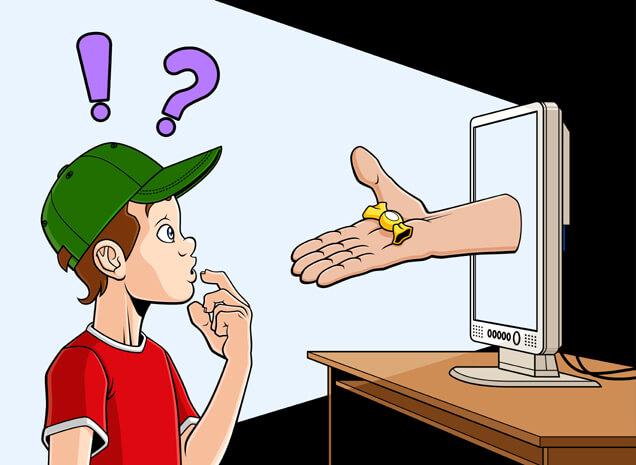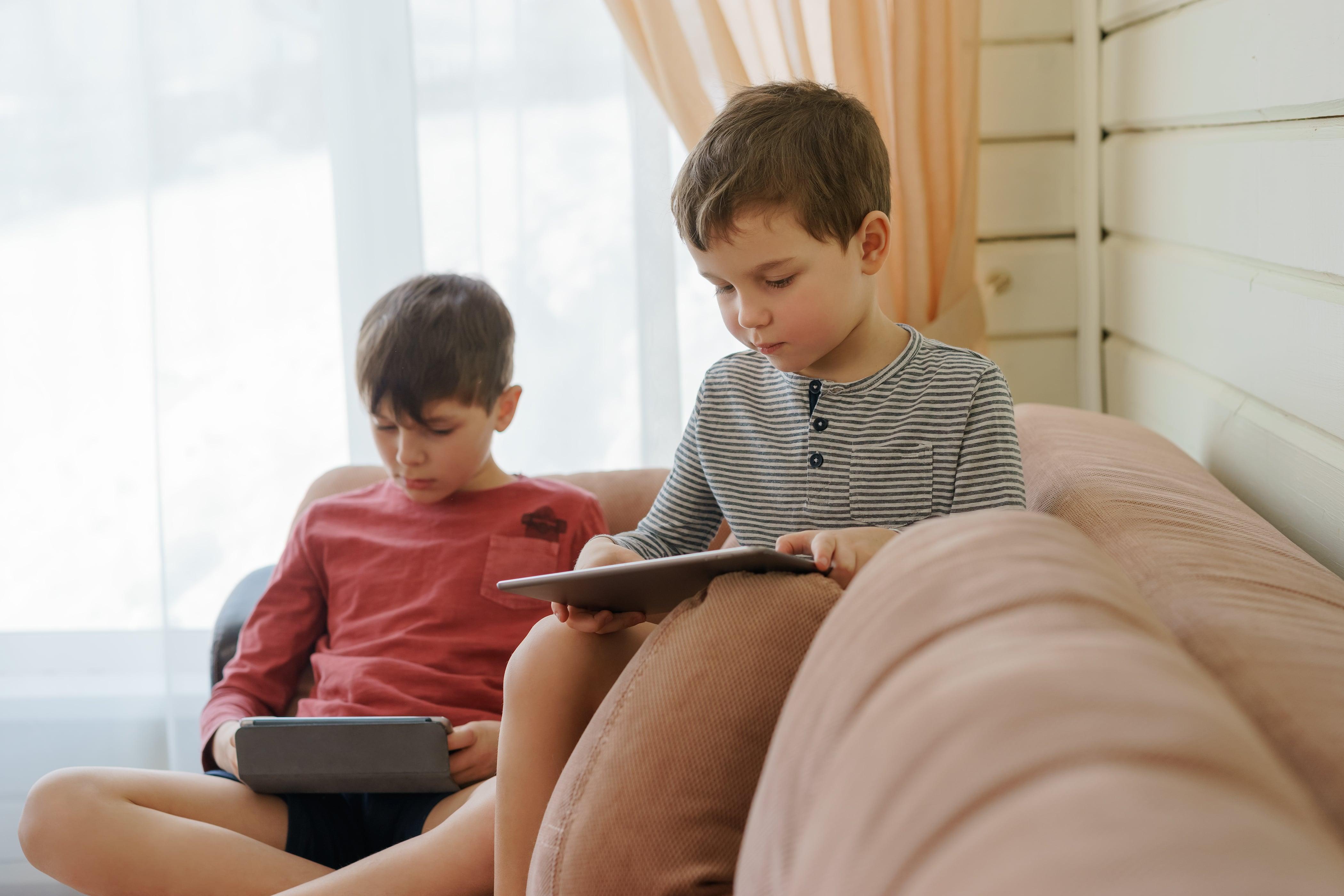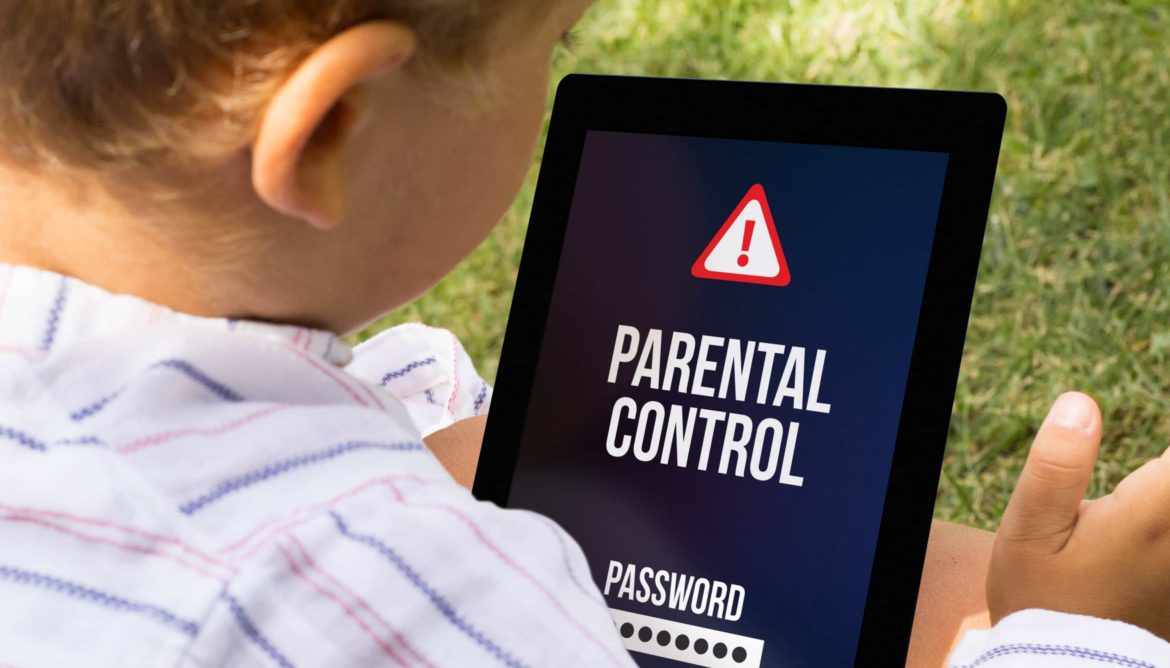Security Experts Tell How to Keep Your Child Safe Online
Nowadays, children have access to the Internet at an early age, so there’s a huge responsibility on their parents to teach them how to be safe while using it. Their extent of knowledge is that the Internet is a magical world which offers all kinds of answers, cool games, and fun videos, but, naturally, at an early age, they don’t know anything about internet safety, online privacy, viruses, or any security issue, for that matter. Thus, it is up to the grown-ups to keep them safe by teaching them what to be on the lookout for when online. Here are some pieces of advice security experts shared to help parents keep their children safe.
David Emm, the senior security researcher at internet security company Kaspersky Lab says you should “start discussing online safety at an early age.”
“I think one of the key things is to start the process of discussing online safety with your children at an early age when they start to do anything that involves the Internet.
They might still be using the computer with you, rather than independently and this offers an opportunity to highlight the fact that the online world parallels the real world and that there are both safe and unsafe things out there. It also enables you to discuss the things that are there to protect us, e.g. Internet security protection, passwords, etc.
As they get older and begin to do things independently, widen the circle. For example, if you let them start an account with Club Penguin or Moshi Monsters, help them create a sensible password and explain why they should use different passwords for each account and the possible consequences of not doing so.”

Paul Vlissidis, technical director at cybersecurity firm NCC Group relies on trust.
“My view is very non-PC I’m afraid (no pun intended). I have no filtering of any kind on my kids’ internet, no snooping and no time limits. I have of course spoken to each of them about the perils of the internet and they know that it’s an unsafe place unless they stay on the mainstream sites.
They do have AV [antivirus software] and I do scan their machines regularly for malware and ensure they remain fully patched but that’s it. Basically, I trust them.
They have approached me several times where something odd has happened or where they had concerns (one Google search my daughter did for Barbie and Ken certainly produced some interesting results I recall). Of course, they may yet turn out to be ax murderers, but only time will tell and at least I don’t feel like a spy.”
According to Shelagh McManus, an online safety advocate for security software Norton by Symantec, it’s quite simple – “If you wouldn’t do it face to face – Don’t do it online”
“The advice I give my own family and friends is encapsulated in: “If you wouldn’t do it face to face – Don’t do it online” For example, would you go up to a complete stranger and start a conversation? Would you be abusive to friends or strangers in a pub or bar?
Just because you feel protected by the apparent distance a screen gives between you and the person you’re talking to, you must remember that online is still the real world.
Mid to late teens need to remember that everything they do over the web is captured forever and could come back to haunt them. Many employers and university admissions offices look at social media profiles when researching candidates.
My husband and I actually used to ask random questions based on what the younger family members had put online just to remind them that they should lock down their profiles! If they didn’t want their dad, uncles and aunts or future employers asking about exactly what was in that fifteenth drink on Saturday night, they needed to check their privacy settings!”
Amichai Shulman, CTO of network security firm Imperva, believes you need to teach your children “to beware of strangers bearing gifts”

“Being a parent (four children), paranoid and a vendor I can shed some light on this. My basic belief is that adults have proven once and again vulnerable to cyber attacks and therefore we cannot expect children to be any better – especially given that their sense of curiosity is far more developed and their sense of caution far less mature.
I do not expect my children to behave online much different than in the real world and therefore I explain to them about hackers being a type of criminal that breaks into your house through the computer rather than through the window. It’s easy for them to understand it.
I also teach them to beware of strangers bearing gifts much like they should in the physical world. For example, I don’t allow my children to open a mail package if they don’t KNOW who sent it (or got my permission to do so) – much the same way, I don’t allow them to open unsolicited email attachments.
Could they fall prey to someone who took over their friend’s account and sent out malware? Yes, but so would most adults. Could they fall prey to a targeted attack on our family? They probably will – like almost all adults.”
David Robinson, a chief security officer at Fujitsu UK & Ireland, says it’s important for children to know that “once you’ve written something, you can’t delete it”
“The Internet is a fantastic place, but you have to be careful what you do and say when you are there. Don’t say things which you wouldn’t talk about in conversations with your family, think about what you do and say, you may well regret what you do by hurting someone or being hurt yourself.
Remember once you’ve written something you can’t delete it, despite what Google is doing in Europe, the right to be forgotten doesn’t apply everywhere! If what you do or say is controversial it will be copied many times and will always come back and bite you, even in later life when you apply to go to college, university or even a job.
How you connect is important too, the gadgets you use, smartphones, tablets even old-fashioned computers all need to be protected as well. But that’s only one part of it, those applications and services you use need to be protected, you don’t want others seeing your information. Use sensible passwords and protection, it’s a little price to pay for the security of your information and intimate details.
Don’t be frightened to ask for help either, there are lots of places and people who can show you what to do and how to behave such as Get Safe Online, friends and teachers.”
“Educate early and often,” says Samantha Humphries-Swift, product manager at cybersecurity firm McAfee Labs
“Get involved – I speak with my daughter regularly about which sites she is using and given her age, I personally vet all app downloads. This way, I can keep an eye on security settings and make a judgment on whether I think it’s safe and appropriate for her to use.

Educate early and often – I warned my daughter about the dangers of the internet as soon as she started browsing, and remind her of safe online behavior regularly – don’t accept friendship requests from people you don’t know, verify requests if they look to be coming from someone you do know, never agree to a private chat with a stranger, never post your mobile phone number or home address online for all to see.
Communication is key – I like to be open, approachable and understanding about what my daughter is getting up to online. This way it makes it easier for her to come to me with any problems she’s experiencing online, and she’s happy to ask for advice.
On a more general note, talk to your kids about how they use their computers and smartphones and ask about any concerns they might have. Be prepared to field any questions they may ask – there are plenty of online resources available to help support you in answering tough and delicate questions.”
Thus, if you have a child, do keep these tips in mind, or if someone close to you does, make sure they read this article. Let’s help make the virtual world as safe as possible for our offspring.




